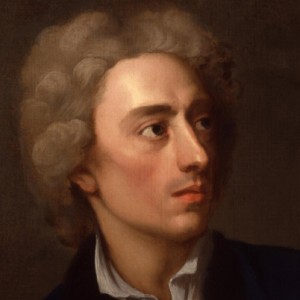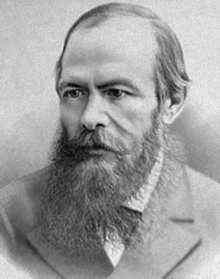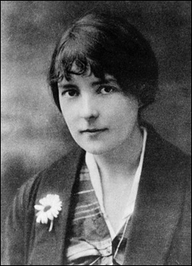“To paraphrase is human…”
“Transport of the mails, transport of the human voice, transport of flickering pictures–in this century as in others our highest accomplishments still have the single aim of bringing [people] together.”
Quotes and misquotes play an important role in Twinmaker, riffing on the idea of words as well as people not surviving transmission intact. (I talked about this a few days ago in Mary Robinette Kowal’s My Favorite Bit). Some of the sources are well-known; some of them are undeservedly obscure. Not all of them are attributed. I thought I’d take a moment here to make up for that.
 Starting with the two above. The first paraphrases perhaps the most famous line from Alexander Pope’s “An Essay on Criticism”: “To err is human; to forgive is divine.” The second comes from Antoine de Saint Exupéry’s novel Wind, Sand and Stars. I’ve tinkered with it to make the point that such things don’t only bring men together. Pope deserves tinkering because Q’s misquoting perhaps proves that’s she’s as human as we are, or something very much like it.
Starting with the two above. The first paraphrases perhaps the most famous line from Alexander Pope’s “An Essay on Criticism”: “To err is human; to forgive is divine.” The second comes from Antoine de Saint Exupéry’s novel Wind, Sand and Stars. I’ve tinkered with it to make the point that such things don’t only bring men together. Pope deserves tinkering because Q’s misquoting perhaps proves that’s she’s as human as we are, or something very much like it.
The line that Q misquotes when she first talks to Clair comes from one of John Keats’ sonnets. It’s unnamed and therefore known by the opening line, which is half the quote itself: “Woman! when I behold thee flippant, vain, / Inconstant, childish, proud, and full of fancies” etc. Q does later get Keats right (“The poetry of the earth is never dead”) in referencing one of my favorite poems by him, “On the Grasshopper and Cricket”.
George W. Russell is badly mangled by Q. “Your eyes are drunk with a beauty your heart will never see” started off as “Our hearts are drunk with a beauty our eyes could never see”, originating in the short poem “The Unknown God” (I love that title in this context, too).
Q’s literary database extends beyond the classics, and why not? She has access to every word ever recorded in the Air. When she quotes Theodore Sturgeon, it comes from his “Postscript” to Philip José Farmer’s The Image of the Beast, one of the most outrageous novels I read as a teenager (my parents would have been horrified). The full quote runs:
“It is not enough to say that living things change; one must go further and say that life is change. That which does not change is abhorrent to the most basic laws of the universe; that which does not change is not alive; and in the presence of that which does not change, life cannot exist.”
All true, but not an excuse for misquoting without attribution.
 Fyodor Dostoevsky almost escapes without alteration: “Beauty is a terrible and awful thing! It is terrible because it has not been fathomed, for God sets us nothing but riddles. Here the boundaries meet and all contradictions exist side by side.” Similarly, William Shakespeare’s words survive mostly intact, from Hamlet and Macbeth, as does Alfred Korzybski and Percy Bysshe Shelley. François Duc de La Rochefoucauld was the “someone French” who wrote “However deceitful hope may be, yet she carries us on pleasantly to the end of life” in his Reflections; or Sentences and Moral Maxims. Because the line is originally in French, Turner is misquoting a translation, itself a kind of paraphrasing, here by J. W. Willis Bund and J. Hain Friswell.
Fyodor Dostoevsky almost escapes without alteration: “Beauty is a terrible and awful thing! It is terrible because it has not been fathomed, for God sets us nothing but riddles. Here the boundaries meet and all contradictions exist side by side.” Similarly, William Shakespeare’s words survive mostly intact, from Hamlet and Macbeth, as does Alfred Korzybski and Percy Bysshe Shelley. François Duc de La Rochefoucauld was the “someone French” who wrote “However deceitful hope may be, yet she carries us on pleasantly to the end of life” in his Reflections; or Sentences and Moral Maxims. Because the line is originally in French, Turner is misquoting a translation, itself a kind of paraphrasing, here by J. W. Willis Bund and J. Hain Friswell.
Clair’s first Oscar Wilde reference to beauty is taken from his famous “Lecture to Art Students”. When Clair later paraphrases Wilde, she’s thinking of The Importance of Being Earnest, Act 1: “To lose one parent, Mr. Worthing, may be regarded as a misfortune; to lose both looks like carelessness.” I imagine a sign quoting that somewhere in VIA’s headquarters, right next to the obligatory “You don’t have to be crazy to work here, but it helps” sign.
That’s it for Twinmaker, but the story continues from another angle in “I, Q”, which will be posted to this site in fragments soon (itself a kind of garbled transmission). In this version of Twinmaker, one of F. H. Bradley’s aphorisms is somewhat twisted from its original, which runs, “The force of the blow depends on the resistance. It is sometimes better not to struggle against temptation. Either fly or yield at once.” The awesome Esther Dyson suffers a similar fate; the original is, “Change means that what was before wasn’t perfect. People want things to be better.”
 A line from one of Katherine Mansfield’s letters undergoes a similar transformation from, “you are always in the heart—oh tucked so close there is no chance of escape—of your sister”. Which sounds sweet and sinister at the same time, doesn’t it? Gustave Flaubert survives unchanged, and Keats arrives with only some cosmetic fixes to make the tenses work. “The Q Files” opens with one of my favourite Keats quotes from Endymion, one I bear mind every time I think about the journeys of both Clair and Q, as they grow into full awareness of their potential:
A line from one of Katherine Mansfield’s letters undergoes a similar transformation from, “you are always in the heart—oh tucked so close there is no chance of escape—of your sister”. Which sounds sweet and sinister at the same time, doesn’t it? Gustave Flaubert survives unchanged, and Keats arrives with only some cosmetic fixes to make the tenses work. “The Q Files” opens with one of my favourite Keats quotes from Endymion, one I bear mind every time I think about the journeys of both Clair and Q, as they grow into full awareness of their potential:
“Do you not see how necessary a world of pains and troubles is to school an intelligence and make it a soul?”

Thanks for this post.
My pleasure! I’ve had hard far too much fun mucking around with other people’s words.